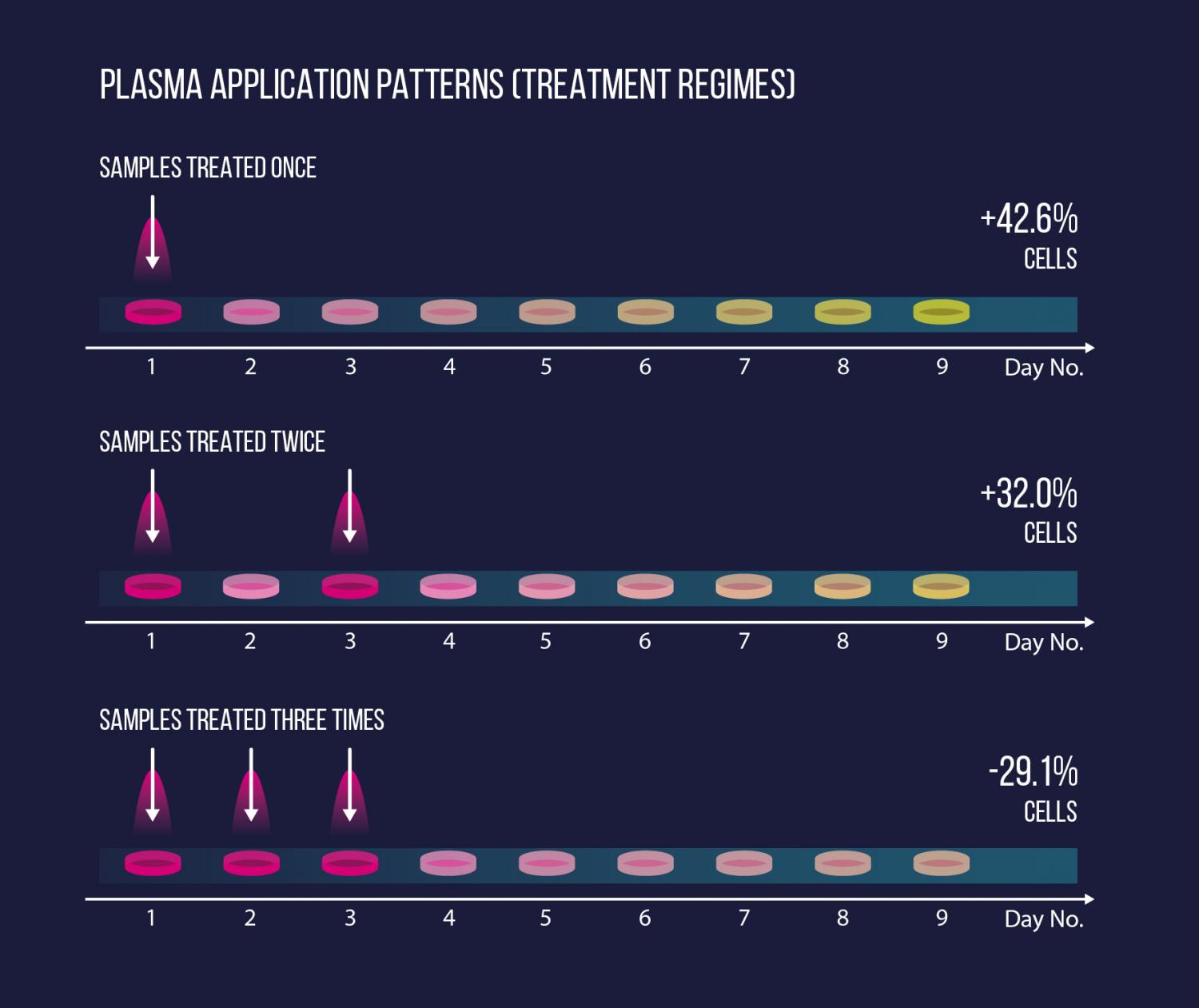
A Chilly Discovery
Non-healing wounds are troublesome to treat, with current methods teetering between extremely difficult and impossible, but cold plasma might be able to change all that.
Researchers have attempted to use cold atmospheric-pressure plasma — a partially ionized gas with a proportion of charged particles close to 1 percent and a temperature of 99,726°C (179,540ºF) — for medical treatment before, but never specifically for non-healing wounds. Apart from confirming the bactericidal properties of cold plasma and showing that cells and tissues have a high resistance to it, those earlier studies yielded non-conclusive results.
By focusing on application pattern, a team of researchers from Russia’s Moscow Institute of Physics and Technology (MIPT) were able to reach more definite conclusions, establishing that cold plasma could indeed help heal non-healing wounds and trigger cellular regeneration.
To test their hypothesis that application was key, the researchers studied the effects of cold plasma treatment using two kinds of cells (connective tissue cells called fibroblasts and epithelial cells called keratinocytes) and three regimes of application. They were able to conclude that a single application was most effective in triggering regeneration and also observed that plasma treatment significantly reduced the levels of β-galactosidase, an enzyme that triggers cellular aging, in their samples.

Relief, Finally.
These results mean that the effect of plasma treatment can now be characterized as regenerative, as opposed to just neutral or even harmful. This opens doors for further research in the area and could lead to the development of a plasma therapy program for the reported 5.7 million patients suffering from open (chronic) wounds.
In their future research, the scientists are planning to look into the molecular mechanisms underlying the effects of plasma on cells and will also attempt to determine what impact, if any, a patient’s age has on the effectiveness of plasma therapy.
If this research is any indication, a whole lot of people may experience an improved quality of life thanks to cold plasma therapy in the future.
The study is published in the Journal of Physics D: Applied Physics.